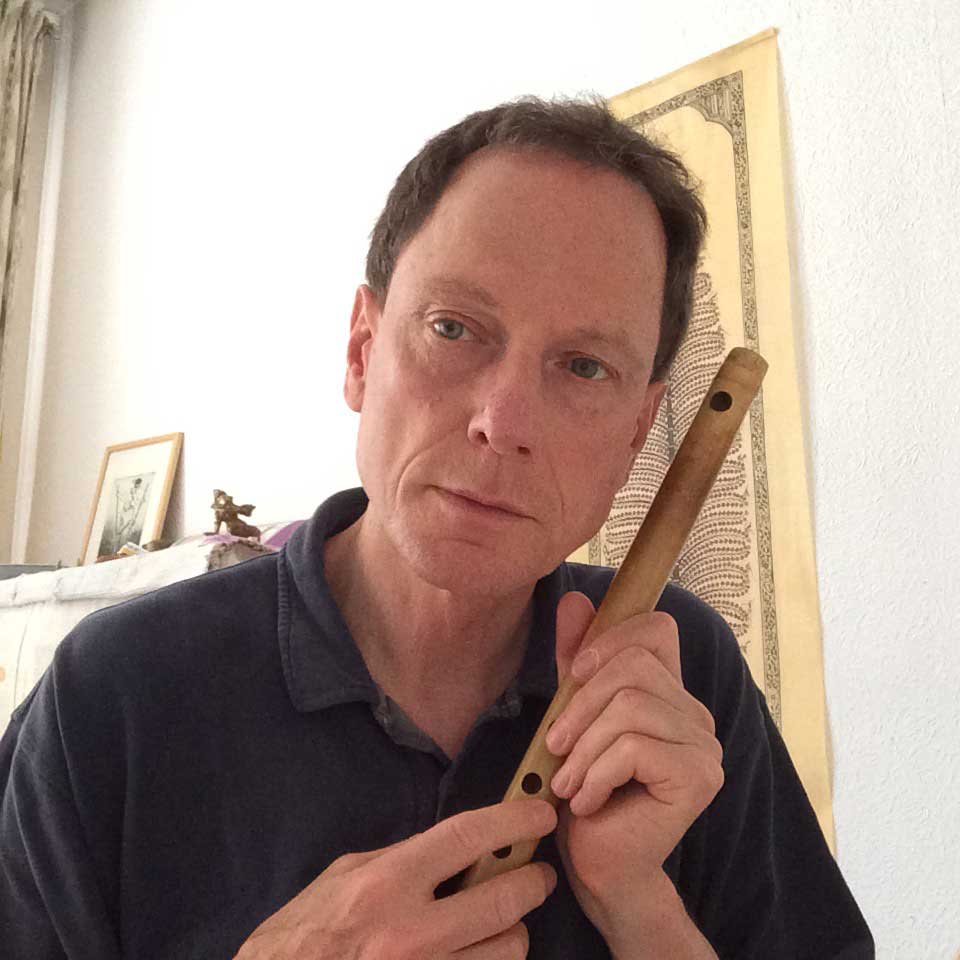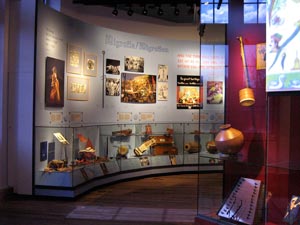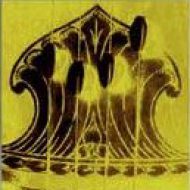
Interested in “other” ways of teaching and sharing music, Ludwig Pesch studied South Indian music at the Kalakshetra (Diploma and Post-Diploma courses). He specialized in playing the bamboo flute under the guidance of Ramachandra Shastry (1906-92), an adherent to the personalized gurukula system of teaching, with whom he performed on many occasions.
Before studying music in India, he had already served as church organist in his hometown for several years; then studied music and musicology in Freiburg (Germany).
For the distance education department of Lüneburg University he developed two online courses (one in English and another in German), described by participants as “a fantastic resource … inspirational”.
One Indian student’s testimonial clarifies:
“As someone who did not have an opportunity to learn the rudiments of Carnatic music, I highly value this course.”

Other Indian participants also remembered their elearning experience not only as meaningful but also “great fun for those of us who have not taken lessons in Karnatic music”.
In collaboration with the Royal Tropical Museum Amsterdam and Architectenbureau Jowa (www.jowa.nl) he researched and developed a semi-permanent exhibition highlighting the inspiration derived from India in the West, and aspects of migration from India that are relevant for Dutch society.
Oxford University Press commissioned him to write the The Oxford Illustrated Companion to South Indian Classical Music, described as “the most thorough study of Carnatic music“.
Throughout, Pesch’s deep engagement with his subject is clear and has its roots in practical experience, since he is a performer of Carnatic music as well as a scholar of it.
Book review by Gerry Farrell in MUSIC AND LETTERS QUARTERLY (Vol. 81, Number 4, November 2000)
In 2006-7 he taught at the Bern University of the Arts Switzerland based on a HKB research project titled “Sam, Reflection, Gathering Together!” (www.sam.mimemo.net) and as part of the 2007 “Musik und Mensch” colloquium series of the Pädagogische Hochschule FHNW in Switzerland. It yielded A musical picture book from Kerala which facilitates the use of syllables associated with daily life as well as the arts; here amalgamated into joyful lessons suited to a wide range of situations.
“In recognition of his outstanding contribution to the spread of knowledge about India’s spirit and life”, he was awarded the Cross of the Order of Merit of the Federal Republic of Germany and the Rabindranath Tagore Cultural Award.
Reviews
His music has been described as “an eloquent demonstration of the universal fact that music transcendents cultural and linguistic barriers” (Indian Express); “captivating and chaste rendition … a golden link with the West.” (Another Garland: A Biographical Dictionary of Carnatic Composers and Musicians; Chennai, 1993). “Pesch created melodies that reached one’s heart” (Eindhovens Dagblad, The Netherlands). – Details >>
The realisation of the sheer beauty of unadulterated sound will open many more doors also for Carnatic music. … Not surprising the Amsterdam-based Pesch is a known musicologist today, with a number of publications to his credit. Perhaps that is why Oxford University Press thought it fit to ask him, rather than an Indian scholar, to pen The Oxford Illustrated Companion to South Indian Classical Music … Pesch is certainly a teacher at heart. But his teaching is not only for the specialised or the academics.
Excerpt from Harmony! (interview on Carnatic Music and art education) by Anjana Rajan in The Hindu (Friday Review, November 13, 2009)
“Ragadhana is indeed a phenomenal work both in terms of its author and his unique treatment of the priceless dhana (‘wealth’) of ragas that highlights his ingenuity.” – Prof. George S. Paul (Preface to Ragadhana)
Preface to Ragadhana
Prof. George S. Paul (Thrissur) in Ragadhana (1993 ed.) | Find a library copy on Worldcat.org >>
Needless to mention that the stress of each raga is on a particular emotion – its mood seizes the listener’s mind and holds it enchanted throughout.
The psychic appeal of lndian music is an intrinsic quality since like all other branches of knowledge of lndian origin, music has also been a form of meditation.
Over the centuries, there have been attempts to classify these myriad scales, to reduce to law and order the indigenous airs that appeared on people’s lips. But a comprehensive method evolved only through Venkatamakhi’s treatise Chaturdandi Prakasika (17th century), considered to be the bedrock of South lndian music even today.
The 72 melakarta ragas described in it represent all the possible combinations of notes which a refined ear can appreciate and easily distinguish. The pivotal role of madhyama (‘f’) in dividing the into purva melas (i.e scales using suddha madhyama or ‘f-natural’) and uttara melas (i.e. scales using prati madhyama or ‘f-sharp’) has been explained by Venkatamakhi himself:
Even as a drop of butter-milk converts the entire milk in a vessel into curd, the substitution of prati madhyama in the place of suddha madhyama in the uttara melas does effect such a radical change and gives rise to an entirely new set of mela ragas.
That the scheme embraces all the modes used in ancient as well as modern systems of music prevalent in different parts of the world, speaks for the universality of the scheme.
Ragadhana is indeed a phenomenal work both in terms of its author and his unique treatment of the priceless dhana (‘wealth’) of ragas that highlights his ingenuity.
His scientific and systematic listing of the janaka (‘generic’) ragas and the innumerable janya (‘generated’) ragas reveals the author’s inventive genius. Perhaps, it surpasses the dexterously coined katapayadi sutra (‘formula’) applicable to only melakarta (or janaka) ragas in that the scheme provides easy access to a treasure of information about the janya ragas as well. The method developed is logically consistent and, if pursued with a little bit of effort, serves the purpose of a ready reckoner of lndian ragas.
The section ‘Pans in Tamil Music’ beckons especially to critics like me who have been vociferously underscoring the need for analysing music on the basis of ethnomusicology, a branch that is yet to form part of the lndian music curriculum. lt reminds us to what immense extent refined classical music has drawn from folk music which is being looked down upon by many so-called classical musicians today.
Similarity of melas to modes in the European tradition and the variegated scales of Western music is sure to entice those who practice these branches both in lndia and abroad.
It was a pleasant surprise for me personally (when I interviewed Mr. Ludwig Pesch for All lndia Radio, Thrissur in 1990) to hear from a European musician of his calibre, conditioned to the notes of equal temperament of the West from early childhood, that he was attracted by the profound philosphical dimensions of Carnatic music.
Nowadays when commercialism has made deep inroads into the realm of music, I wonder how many lndian practicioners of music have realized this truth. This observation epitomises the author’s involvement in this particular stream of lndian music; and echoes the rigorous discipline he underwent in Kalakshetra (Madras) under the flute-virtuoso H. Ramachandra Shastry.
It is my proud pleasure to commend this book to those music lovers around the world who evince more than a superficial interest in lndian Music.
More about the above person(s) and topics
Periodicals and sites included | More resources | Disclaimer >>
Learn & practice more
- A brief introduction to Carnatic music (with music examples and interactive map)
- Free “flow” exercises on this website
- Glossary (PDF)
- Introduction (values in the light of modernity)
- Video | Keeping tala with hand gestures: Adi (8 beats) & Misra chapu (7 beats)
- Voice culture and singing
- Why Carnatic Music Matters More Than Ever
- Worldcat.org book and journal search (including Open Access)
Publications, book chapters and articles by Ludwig Pesch
To find a copy in a nearby library, search Worldcat.org >>

